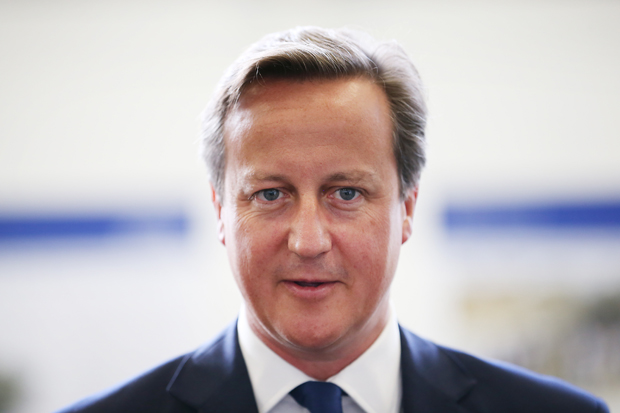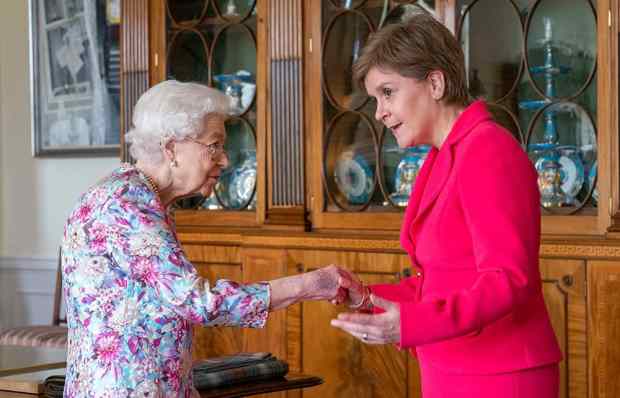Listen
As David Cameron lined up beside Nick Clegg and Ed Miliband at the Cenotaph on the day after the general election, he said that he had thought he would be the one writing a resignation statement that day. He may also have imagined how history would have judged him: as a so-so Tory leader who didn’t quite manage to win an election against the reviled Gordon Brown and was booted out after one term. A leader who was good at balancing a coalition but who didn’t stand for (or achieve) very much himself. It would have been a miserable legacy. Luckily he now has the chance to reshape it.
The political landscape he surveys has changed utterly. Of all the political parties, only the Conservatives and Scottish Nationalists are intact. The Labour party is settling down for a long civil war. The brains of the party know that it needs to move to the right and learn to like the English — and to come up with an agenda that will be well received in the market towns. The Liberal Democrats, reduced to eight MPs, are discussing starting afresh under a new name.
Ukip did rather well in the general election, with 14 per cent of the vote in England (almost twice that mustered by Nick Clegg). But the party now faces an awkward question: is it a one-man band? Its attempt to deny that — with the resignation of Nigel Farage — lasted only three days. His absurdly quick return did not give Suzanne Evans, the party’s estimable deputy chairman, a chance to show it was anything other than a political comedy routine. Douglas Carswell, Ukip’s sole MP, is now at war with what passes for the party’s leadership over its degree of state subsidy. It could well fall apart.
All of this creates an extraordinary opportunity for the Conservatives — and for Cameron personally. This was his victory. He dispensed with the advice of the so-called ‘modernisers’ under whose misdirection he failed to win the 2010 campaign. He hired Lynton Crosby, who helped him mould a more earthy, direct Conservatism with simple pledges on low tax and cost of living. It was summed up by his offer, first revealed by James Forsyth in this magazine, to give 1.3 million housing association tenants the right to buy their home. It was dull — sometimes infuriatingly so — but effective.
Cameron won after a campaign which moved on from the Tory factionalism, and beyond the misnamed ‘modernisation’ agenda which so narrowed his party’s appeal. Of the 330 Tory MPs, 208 have only been in parliament for five years or less: they have no interest in the mods vs rockers sectarianism pursued by still-feuding Tory partisans. Cameron’s reshuffle this week shows he is quite serious about uniting his party. As he realises, his job now is to run an internal coalition with as much care as he used to run an external coalition. But that is not enough to keep everyone happy. He needs an agenda of his own.
His opportunity lies in a phrase he used in the victory speech that he had not expected to give: about the need to return to ‘One-nation Conservatism’. The agenda itself is straightforward. It goes without saying that the Conservatives celebrate wealth creation. The challenge is to explain that prosperity has a purpose. Two Tory missions illustrate this well: Michael Gove’s school reform and Iain Duncan Smith’s welfare reform. Their intention is to confront the twin scandals of sink schools and mass unemployment. Now, as Business Secretary, Sajid Javid can work out whether increasing the minimum wage is the best way of helping the low-paid — or whether other tax changes could help.
Cameron’s conservatism can be explicitly reorientated towards two missions: strengthening the recovery and ensuring its fruit is shared as widely as possible. But to do this, one important reshuffle needs to take place: inside 10 Downing Street itself. Cameron badly needs a chief of staff who can give his government the same direction that Lynton Crosby was able to apply to the election campaign. Someone who is capable of picking two or three main objectives, then sticking to them — at least until the EU referendum. Cameron’s great weakness is in hiring his friends and letting No. 10 degenerate into a ‘chumocracy’. He needs to cast aside these human comfort blankets and have No. 10 run by a hard-nosed workaholic who is respected across government.
‘One-nation’ politics works — just ask Nicola Sturgeon. Her SNP treated every seat in Scotland as if it were winnable. As a result, the party has quadrupled its membership since the referendum and won almost all of those seats. If such enthusiasm can be rallied behind such a vacuous creed as nationalism, then the potential for Conservatism is far greater. With his rivals in disarray, Cameron has an extraordinary chance to champion a bolder, more ambitious and more generous form of Toryism — one that is capable of winning a landslide majority in 2020.
This goal, unthinkable a fortnight ago, is now within reach. If Cameron learns the right lessons from the campaign then this can be his legacy.
Got something to add? Join the discussion and comment below.
Get 10 issues for just $10
Subscribe to The Spectator Australia today for the next 10 magazine issues, plus full online access, for just $10.
You might disagree with half of it, but you’ll enjoy reading all of it. Try your first month for free, then just $2 a week for the remainder of your first year.














Comments
Don't miss out
Join the conversation with other Spectator Australia readers. Subscribe to leave a comment.
SUBSCRIBEAlready a subscriber? Log in